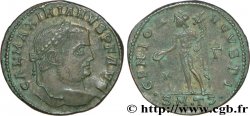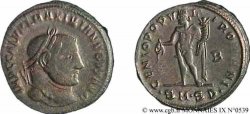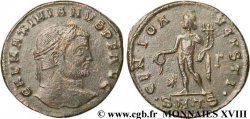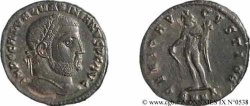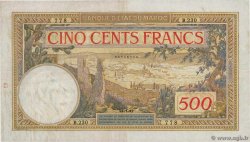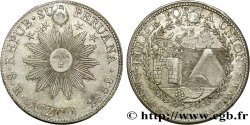- Accueil
- >
- >
brm_900862 - GALERIUS Follis ou nummus
Not available.
Item sold on our e-shop (2025)
Price : 190.00 €
Item sold on our e-shop (2025)
Price : 190.00 €
Type : Follis ou nummus
Date: été
Date: 307
Mint name / Town : Lyonnaise, Lyon
Metal : copper
Diameter : 26,5 mm
Orientation dies : 6 h.
Weight : 8,19 g.
Coments on the condition:
Exemplaire bien centré des deux côtés sur un flan épais avec les grènetis visibles. Très beau portrait inhabituel de Galère. Joli revers dont les détails de la musculature sont visibles. Patine marron foncé
Catalogue references :
Obverse
Obverse legend : IMP MAXIMIANVS P F AVG.
Obverse description : Buste lauré et cuirassé de Galère auguste à gauche, avec pan de paludamentum, vu de trois quarts en avant (B*11).
Obverse translation : “Imperator Maximianus Pius Felix Augustus”, (L’empereur Maximien pieux heureux auguste).
Reverse
Reverse legend : GENIO POP-VLI ROMANI/ -|N// PLG.
Reverse description : Genius (Génie) debout à gauche, coiffé du modius, le Génie porte l’himation, tenant une patère de la main droite et une corne d'abondance de la main gauche ; autel dans le champ à gauche.
Reverse translation : “Genio Populi Romani”, (Au Génie du Peuple romain).
Commentary
Rubans de type 3. Cuirasse cloutée. Épaulière cloutée. Ptéryges fines. Un changement radical intervient dans la représentation du Génie au revers. Il est maintenant normalement revêtu de l’himation au lieu du manteau tombant sur l’épaule (paludamentum). Une autre innovation est l’apparition de lettres dans le champ à droite.
Type 3 ribbons. Studded breastplate. Studded shoulder pad. Fine pteryga. A radical change occurs in the representation of the Genie on the reverse. He is now normally dressed in the himation instead of the mantle falling on the shoulder (paludamentum). Another innovation is the appearance of letters in the field on the right
Type 3 ribbons. Studded breastplate. Studded shoulder pad. Fine pteryga. A radical change occurs in the representation of the Genie on the reverse. He is now normally dressed in the himation instead of the mantle falling on the shoulder (paludamentum). Another innovation is the appearance of letters in the field on the right







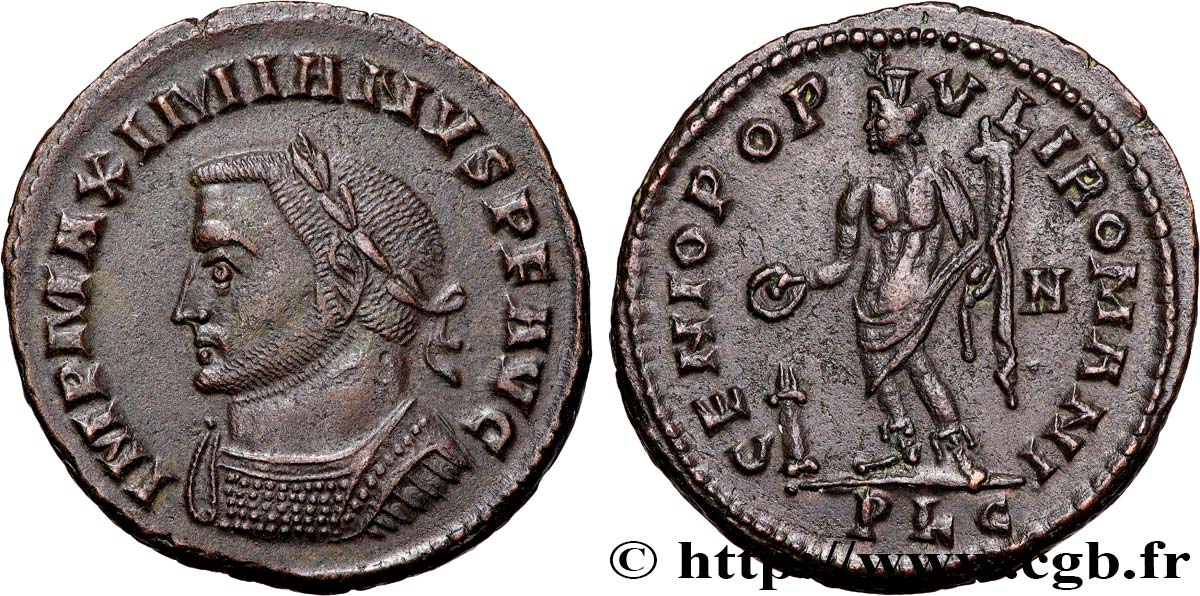
 Report a mistake
Report a mistake Print the page
Print the page Share my selection
Share my selection Ask a question
Ask a question Consign / sell
Consign / sell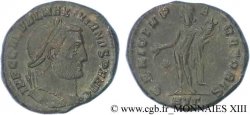
 Full data
Full data